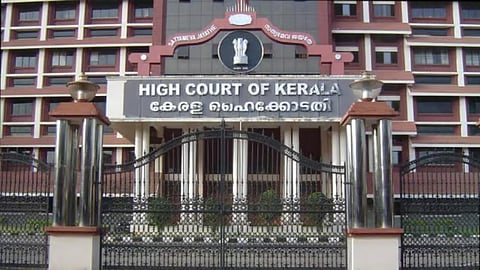

A lesbian couple in Kerala have moved the High Court against a private hospital in Kozhikode alleging that one of them was forcefully subjected to ‘conversion therapy’ by the medical practitioners at the hospital. Justice Devan Ramachandran, before whom the case came up on March 20, has issued a notice to the hospital and has posted the case for hearing after two weeks.
The couple, who will be identified here as X and Y in order to protect their anonymity, alleged that X was forcefully taken from her partner and subjected to ‘conversion therapy’ by Dr Mohan Sundaran in Manohar Hospital, Kozhikode. They also asked the court to declare ‘conversion therapy’ as illegal, unconstitutional, and violative of fundamental rights guaranteed by the Constitution, and direct the government to take action against both Manohar Hospital and Dr Mohan Sundaran. The couple also asked the court to issue directions for the formulation of a mental health guideline that makes it illegal to practise any form of ‘conversion therapy’ either by practitioners or by mental health institutions.
Sexual Orientation Change Efforts (SOCE), which is widely known as ‘conversion therapy’ or ‘reparative therapy’, is an illegal practice that members of the LGBTQIA+ community are subjected to, often by their families and religious institutions, in a bid to ‘cure’ them of their sexual orientation or gender.
In September 2022, the National Medical Commission (NMC) categorised conversion therapy as professional misconduct and empowered all state Medical Councils to take disciplinary action against medical professionals who conduct such ‘therapy’. In 2021, Justice Anand Venkatesh of the Madras High Court declared that any attempts to medically ‘cure’ or change the sexual orientation or gender identity of LGBTQIA+ persons should be prohibited.
X and Y were living together in Ernakulam since January 2023 after a Malappuram Magistrate Court issued an order in their favour. In May 2023, X was allegedly forcefully taken away from her workplace by her family, following which Y filed a habeas corpus petition in the Kerala High Court. In June 2023, X was produced before the court, where she said that she was not illegally detained and that she did not want to live with Y. However, later that month, she texted Y saying that she was subjected to several medications and torture by her family and the hospital. Y filed a complaint with the police and X was produced before them by her family. X told the police she was heavily medicated and was unable to perceive things clearly when she was produced at the court, and that she would like to live with her partner, following which she was sent with Y.
The couple have now approached the High Court seeking action against the hospital and to formulate guidelines pertaining to ‘conversion therapy’. “The modes of operation implemented by the hospital authorities were clear violations of the Mental Health Act and fundamental rights of the petitioner envisaged by the Constitution of India,” they said.
The plea also said, “The practice of conversion therapy is not scientific and against the fundamental rights of the individuals. Conversion therapies are illegally practised on people against their will. Hence, [it is] liable to be declared unconstitutional and violative of fundamental rights.”
The couple, in an earlier interview with TNM, had said that the doctor told X that homosexuality was unnatural and that it can be cured. “I tried to not drink the medicine they gave me, so they injected it. In the beginning, it was administered in low dosage. When I said that I wanted to go to [Y], the doctor got angry at me and increased the dosage of medicine,” X had said.
Read: ‘Conversion therapy’ still continues in India, despite a ban
The Supreme Court, in a recent judgement on March 11, issued guidelines to the High Courts dealing with habeas corpus petitions or petitions for police protection. The guidelines were issued while hearing a case filed by a lesbian woman, challenging a Kerala High Court judgement that directed her partner to undergo counselling. The SC observed that the attempt to overcome the identity and sexual orientation of an individual by a process of purported counselling was “completely inappropriate”, and directed that courts must not adopt counselling as a means of changing the mind of the appellant or the detained/missing person.